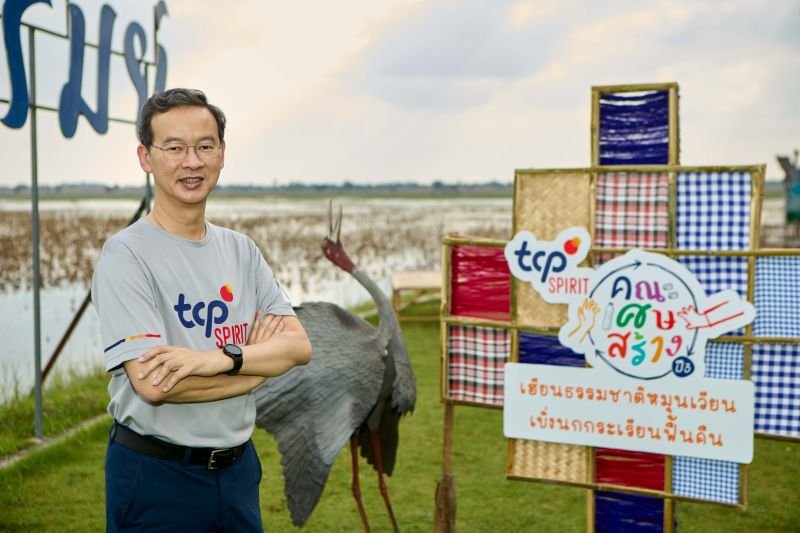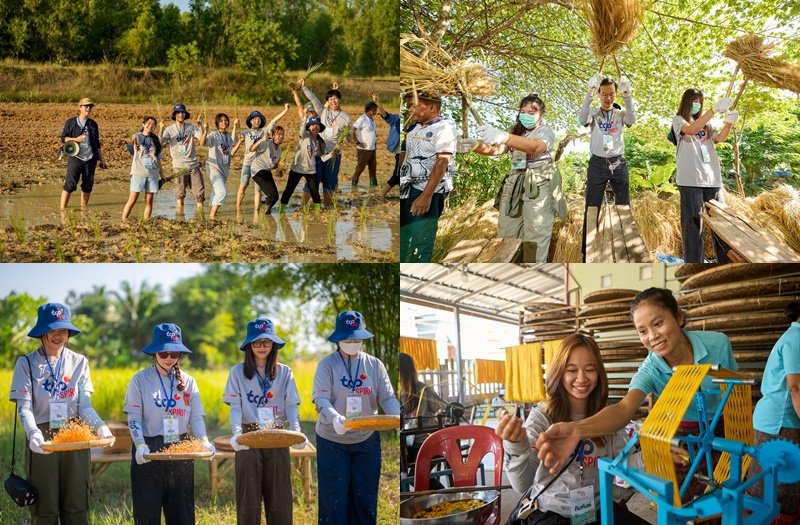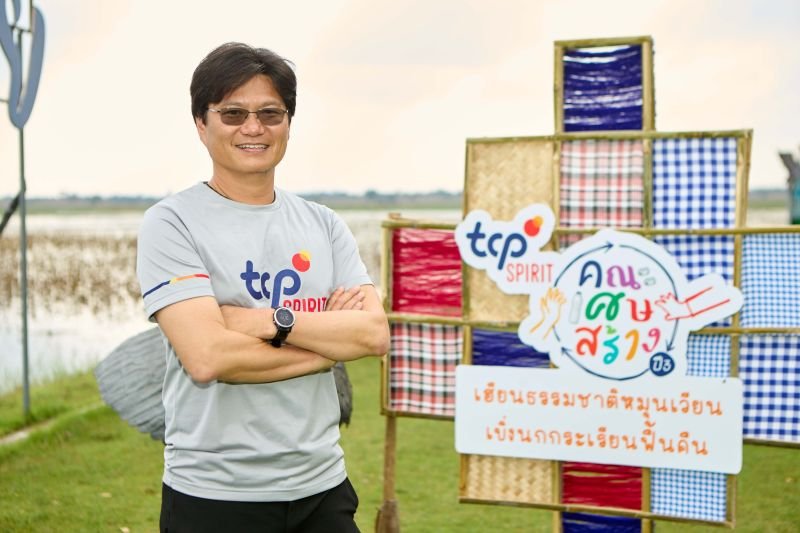TCP Spirit’s “Kana Sed Sarng Year 3” Explores the Circular Economy in Nature Energizing the New Generation to Regenerate Resources and Promote Global Balance

TCP Spirit is promoting environmental awareness and preservation, and a commitment to regeneration among the eco-conscious new generation through Kana Sed Sarng Year 3, “Learning about Nature’s Cycle, Witnessing the Return of the Cranes,” in Buriram Province. This program offers hands-on experiences in understanding the Biological Cycle, promoting community-based resource circulation, and encouraging ecological regeneration for sustainability. Volunteers are inspired to bring this knowledge back to their communities, empowering them to drive positive change for a better world.

TCP Spirit 2024 builds on its knowledge base and intensively continues lessons on the circular economy for a new generation volunteers of Kana Sed Sarng Year 3. Volunteers will observe the Biological Cycle in Buriram province, where wetlands serve as a vital water storage area strengthening resilience in water management, building model communities that coexist harmoniously with nature. Volunteers will gain insights into the interconnectedness of ecosystems that depend on cycles of renewal and the need to regenerate to restore balance in a world facing crises.

Mr. Saravoot Yoovidhya, Chief Executive Officer of TCP Group, said, “TCP Spirit aims to promote environmental preservation and regeneration through Kana Sed Sarng Year 3 in Buriram Province. This initiative provides hands-on learning experiences to help new generation volunteers understand the circular economy, which replaces the traditional linear model and addresses natural resource issues by focusing on maximizing resource use and minimizing waste. We hope this activity will inspire volunteers to apply their knowledge within their communities, energizing those around them to drive positive change and contribute to preserving and regenerating the environment, making our world a better place.”

Discover the Highlights of a Natural Classroom
TCP Spirit emphasizes experiential learning in a natural classroom, allowing volunteers to explore diverse ecosystems and model communities. This approach provides a concrete understanding and practical skills.
- Wetlands – A Hub for Environmental Conservation: Volunteers will explore the Wetland Learning Center, a crucial site for water storage and circulation that addresses drought and water scarcity, ensuring water security for the community. This venue also showcases ecosystem balance, evidenced by the return of Sarus cranes after decades of absence.
- The Return of Extinct Cranes to their Habitat After Nearly 50 Years: Volunteers will explore the project area where Sarus cranes have been reintroduced to their natural environment, with the community’s active role in protecting, regenerating, and enriching the land to ensure the cranes can thrive. They will also participate in planting Spike Rush, a key food source for the cranes, to support ecosystem circulation.
- Organic Farming – Beneficial for Living Beings and the Environment: Volunteers will engage in organic farming practices that enhance soil fertility, minimize impacts on the food chain, and reduce carbon emissions from machinery and chemicals. Activities include hands-on experiences like rice threshing, winnowing, and cultivating seedlings.
- Silk Weaving and Sustainable Resource Use: Volunteers will experience the traditional art of silk weaving at Ban Hua Saphan, where silk is woven through organic mulberry cultivation and silkworm rearing. Fertilized with cow manure and straw to maintain soil health, this process supports mulberry leaf production required for silkworms, allowing sustainable planting. By-products, like silk cocoons and silkworms, are further processed to add value.

Dr. Petch Manopawitr, a conservation scientist and head teacher at Kana Sed Sarng, shared insights into the ongoing lessons of the circular economy: “Volunteers will explore the Biological Cycle at the Wetland Learning Center, a habitat for various animals, including the once-extinct Sarus crane. This species is now thriving thanks to ecosystem regeneration, water management, and food source creation. This success is a result of the collaboration between conservationists and community members who support sustainable coexistence with nature. Volunteers will engage in hands-on activities, including organic farming, sustainable mulberry and silk farming, and waste-free silk weaving. These experiences will help them understand how to create circulation, repair, and regenerate resources to preserve biodiversity in ecosystems – a key factor in maintaining the balance and sustainability of the world.”

Over the past three years, Kana Sed Sarng Year 3 has inspired the new generation to learn about the concept of a circular economy and turn knowledge into action. This supports the TCP Spirit’s mission of energizing a network of environmentally conscious volunteers. These efforts contribute to creating positive and sustainable change for communities and society, reinforcing TCP Group’s purpose of “Energizing a Better World for All.”




